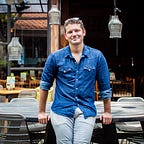5 ways seasteading will change the world
Seasteading is the concept of creating permanent dwellings at sea, called seasteads, outside the territory claimed by any government. Seasteaders say such autonomous floating cities will foster faster development of techniques “to feed the hungry, cure the sick, clean the atmosphere and enrich the poor”.
Making buildable land
One of the biggest reasons for house prices to increase is the old saying “we’re not making anymore land”. However Seasteading will remove this as we will not need land in order to live. By removing the land issues, suddenly we can create floating cities close to major points of interest — Just think of the Rio Olympics with the cruise ship that acted as a short term hotel. Or think of NOAH — the arcology that has been designed as a city in itself sitting on the banks of the Mississippi creating greater access to the New Orleans CBD. This sort of thinking is going to dramatically change our relationship with fixed abodes where people will actually choose to sea stead instead of a more traditional house.
Saving nations from global warming
“Apart from experimenting with innovations in governance, Executive Director of Seasteading.org Hencken is also excited about the potential for seasteading to serve as a platform for developing tools to help with climate change adaptation as well. There are many islands out there at risk of disappearing due to climate change — Kiribati in the south pacific ocean is already buying up large plots of land in Fiji, given in 100 years, the island won’t even exist. Storms are getting worse, and considering the island is only 2m above sea level at its highest peak, the future is grim. However seasteading could be a chance for the local people to remain, keep their traditions and build a new island.
It is actually in the French Polynesian Islands, where the first prototype is being built. An agreement has already been signed and work will be getting started soon. Once they’ve built a successful pilot, it is easy to imagine deploying similar seasteads to places like Miami and Bangladesh.”
Social Experimentation
Tech Billionaire Peter Thiel is a major investor in the first seasteading project and has envisioned libertarian utopia. “The United States Constitution had things you could do at the beginning that you couldn’t do later. So the question is, can you go back to the beginning of things? How do you start over?” Peter told Details Magazine in 2011
The technology to foster the fluid mechanics of voluntary societies is at hand. The most successful floating cities can then inspire change around the world. The “seavangelists,” as they have been described, aren’t the first group of entrepreneurs to have called for the creation of an unfettered space for inventors and scientists. Google co-founder Larry Page has also said the tech community should be able to “set aside a small part of the world” to allow experimentation, while others have called for Silicon Valley to become an independent state.
They are however confident that the freedom to innovate and experiment will attract buyers.
“Business people want new jurisdictions for innovations: build it and they will come. Technologists and countries will come to us,” he believes.
The business model for the seasteads is that the creators would sell the real estate that they create, as well as stakes in companies that will operate on them.
Refugee housing
If freedom from regulation is not enough, there will be other advantages to a life on the waves: a cheaper cost of living and a lower risk of crime. The rationale is based on the experience of cruise ships, which, he notes, just keep getting bigger and bigger.
This will give us the ability to house refugees for long periods of time, without risking existing citizens of other countries, even being able to split up sub cultures amongst different seasteads to prevent further violence. What’s more, this can be used as a temporary or permanent solution, with refugees having the option of heading home after the war. It also gives the autonomy needed to create and run their own seastead should they choose to. A far cry from the current refugee nightmare of the middle east.
“Cruise ships are floating cities that are de facto self-governing. They are semi-independent pioneers of the blue frontier: They dock in one nation, fly the flag of another nation, and pick up passengers from another,” says Joe Quirk of The Seasteading Institute
The captain of a cruise ship, argues Quirk, is “a de facto dictator of his own global island,” in that he can lock up passengers who misbehave towards other people on the ship.
“Park a dozen of these floating skyscrapers next to each other, and you’ve got the rudiments of an aquapolis,” said Quirk.
With all these benefits it is an exciting time to watch how seasteading unfolds, takes grip and one day will be common place. So I guess the question left now, is who wants to start their own government?
Resources:
